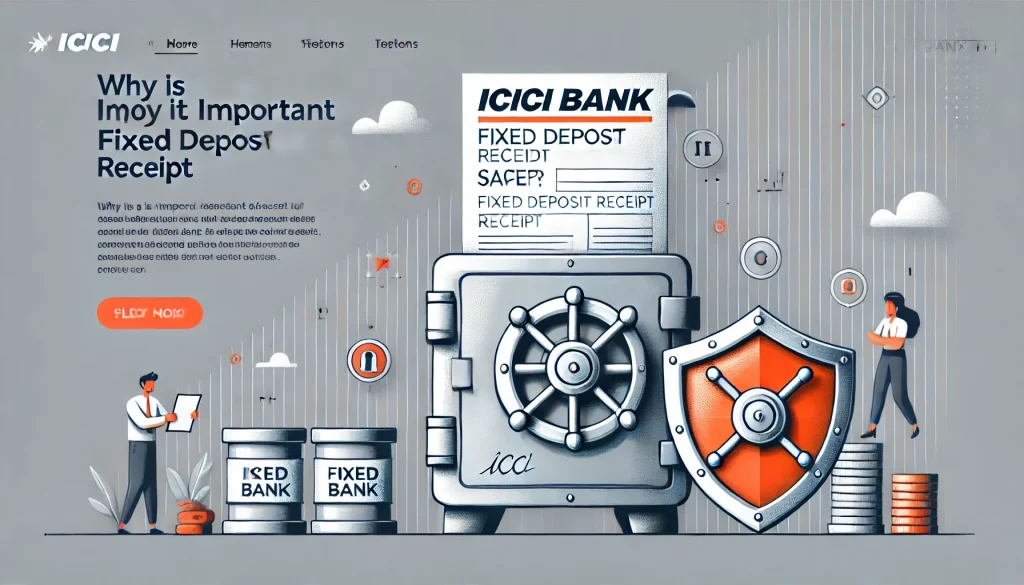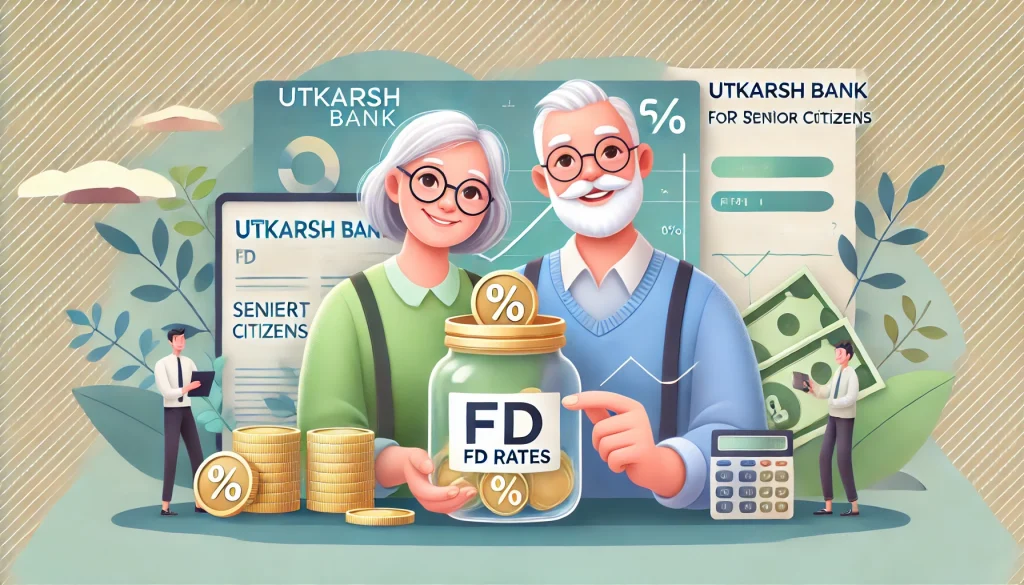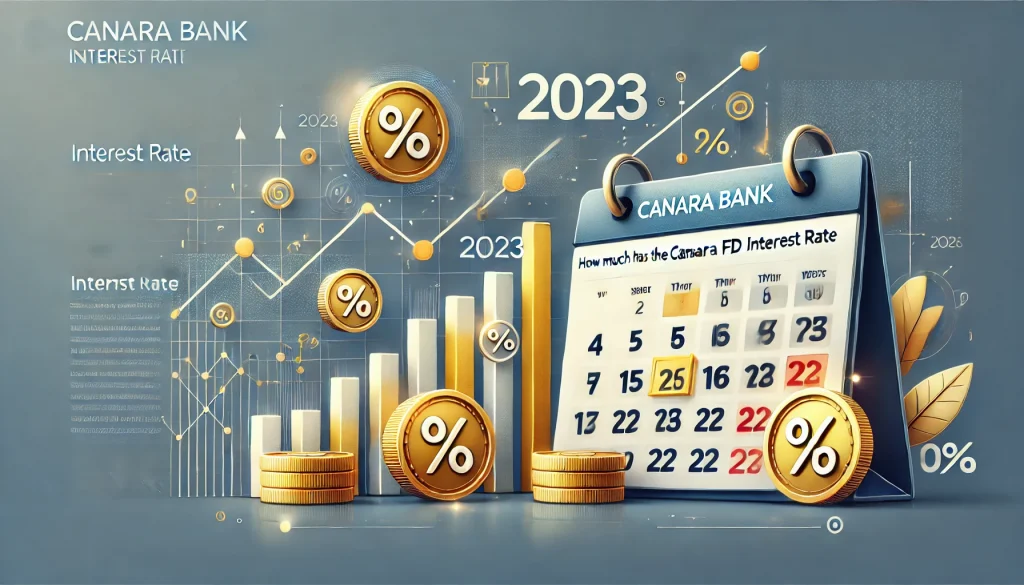
In the realm of financial investments, there are various options available to investors to put their money into to save and grow them over time. One such investment option that stands out significantly due to its dependability and safety is a certificate of deposits (CDs). Whether you are an experienced investor or have just started exploring investment choices, having a detailed knowledge of CD can add value to your financial knowledge.
In this detailed guide, we will discuss different aspects related to certificate of deposits along with its rates, eligibility and process to buy or sell CDs in India.
What is a Certificate of Deposit?
A certificate of deposit, commonly known as a CD, is an investment tool issued by different banks and financial institutions. Here, the depositors can lock a certain amount of funds for a fixed tenure and earn high returns on them. The financial institutes offer high and attractive interest rates on CD.
How Does a Certificate of Deposit Work?
The working process of certificate of deposits is easy and straightforward. You contact a bank or any financial institution to issue a CD to save money. The bank pays you a high and fixed interest rate against depositing a fixed sum of money for a fixed duration (also known as a term of deposit).
When your CD matures or the term is up, the bank returns your money, including the principal and interest amount. Some financial institutions also allow you to access your certificate of deposit money before the maturity period. In case of premature withdrawal, a penalty is charged, significantly reducing the earned interest on your CD.
Here is a pro tip before you choose to invest in a CD. Ensure you have an emergency fund handy before opening a certificate of deposit account. Having money in an account that is easily accessible and no penalty is required will help you save money efficiently using a CD.
What are the Features of a Certificate of Deposit?
There are several features associated with a financial institute or bank certificate of deposits that help you understand the aspect of the same clearly. Let us look at the below pointers, analysing the different features of this investment instrument.
1. Fixed Investment Amount
The principal amount required for investment in a certificate of deposits is fixed. You cannot add funds to your CD account once your CD successfully starts operating. Some financial institutions or banks also have a minimum limit to such investments. In most cases, the minimum investment amount is ₹1 lakh.
2. Rate of Interest
Certificate of deposit rates are generally higher than FDs or other investment options. The rate is locked once your CD account starts. A fixed interest rate helps you predict your returns before investment. However, you have an option to apply a floating interest rate. In such cases, your rate can increase or decrease as per market conditions.
3. Transferability
You get the provision to transfer your certificate of deposits if you want. A CD that is not electronically recorded can be transferred with the help of delivery and endorsement. In case CDs held in demat accounts can be transferred as per guidelines followed by specific demat securities.
4. Flexible Tenure
You get a flexible tenure with CDs. The range is usually between a few days to a maximum of 5 years. Some banks offer higher tenure on CDs. You can choose your investment tenure as per financial suitability. The term you choose remains fixed unless you withdraw your CD prematurely.
5. Tax Implications
The income earned from your certificate of deposits is fully taxable as per your tax slab and the laws of the Indian Income Tax Act. No exemptions are available in such deposits; hence, you do not get any tax benefits while filing an ITR.
6. Loan Opportunities
As a depositor, you are eligible for a loan against your CDs unless RBI instructs certain financial institutions specifically not to give loan options. The issuer can buy back your CDs as per the price prevailing in the market.
What are the Advantages of Investing in a Certificate of Deposit?
Before investing your money, checking the deposit certificate rates is crucial. To help you make an informed decision, here are the advantages of investing in CDs:
- For investors, security is crucial, and CDs give a high level of security. Banks and financial institutions regulated and overseen by the Reserve Bank of India (RBI) often provide them.
- The majority of banks don’t impose CD maintenance costs. As a result, you may invest and earn interest without being concerned about deductions that would reduce your earnings.
- Certificate of deposit rates are often higher when compared to regular savings accounts. The longer the tenure of the CD, the higher the interest rate tends to be. This makes CDs an appealing choice for those looking to earn more.
- CD laddering is a strategy where you spread your investments across CDs with different maturities. By doing so, you can access your funds at regular intervals. This strategy allows for greater flexibility and liquidity in managing your finances.
- Banks and financial institutions give you a further 7 days to decide whether you want to invest the matured amount after the end of your tenure. It helps to grow investment in case emergency funds are not required.
- CD rates are generally fixed when you invest in this financial instrument. It helps you handle your finances with profitability and certainty.
Eligibility to Get a Certificate of Deposit
Here are the eligibility criteria to remember while applying for a certificate of deposit with any financial institution or bank.
- Individuals
- Companies
- Trusts and Societies
- Funds
- Corporations
- Mutual fund houses
- Only non-repatriable CD investments are available to NRIs.
Who Should Invest in a Certificate of Deposit?
Investing money in certificates of deposits is only a cup of tea for some. It may have low risk, but the risk is quite significant from the point of view of an investor. Let us check below to analyse who is well suited to invest in a CD.
- Risk-averse investors who are seeking a secure investment option.
- Individuals or entities looking to diversify their investment portfolio with a low-risk asset.
- Those with a specific financial goal in mind, such as saving for a down payment on a house or funding a child’s education.
If you want to invest in CDs with its risk, here is a solution for you. Diversifying your CD investments, known as laddering, can mitigate reinvestment risk and enhance liquidity. Instead of investing, say ₹10 lakhs in a single 1-year CD, you can split it into four CDs of varying durations (6 months, 1 year, 2 years, and 3 years) at ₹2.5 lakhs each.
After six months, you can access ₹2.5 lakhs without penalties, benefiting from higher rates offered by longer-term CDs. This strategy can help you create a solid plan to build wealth efficiently.
How to Buy or Sell a Certificate of Deposit in India?
The process of selling or buying a certificate of deposit in India is very similar to the process of buying or selling shares in the financial market. Here is a step-by-step guide on buying or selling your CDs as per your financial suitability.
- Step 1: As a buyer, first, you must agree on the present price and transaction quality.
- Step 2: The seller will authorise the buying participant with the help of a slip that includes all necessary delivery instructions.
- Step 3: The slip provided by the seller has all the necessary instructions and steps to debit funds from the seller’s account. After that, it is transferred to the certificate of deposit to the buyer’s account.
If you are unable to sell or buy CDs on your own, you can always get professional help from experienced individuals or consultancies to complete the process seamlessly.
Conclusion
Investing money in certificates of deposits is a safe and predictable method to grow your savings within a fixed period. With a high-interest rate and government-backed investment options, CDs are an attractive option to grow investment portfolios by several investors. Review the terms and conditions banks and financial institutions offer regarding investment in CDs before opening a CD account.
Now that you have understood the features, benefits, and process of selling and buying CDs, making informed financial decisions for your money will be easy.
FAQs
To invest in a certificate of deposit account, the minimum investment required is ₹100,000. However, some financial institutions may charge higher or lower amounts as a minimum investment as per their policy.
Generally, the minimum tenure to invest money into a CD is 7 days, and the maximum tenure is 3 years. Nonetheless, some banks allow higher investment tenure as well.
Generally, the minimum tenure to invest money into a CD is 7 days, and the maximum tenure is 3 years. Nonetheless, some banks allow higher investment tenure as well.
You cannot add any extra funds to your existing CD. Once you purchase a deposit certificate with a certain amount, it remains fixed till maturity
Yes. Your earned interest on the certificate of deposits is taxable according to laws of the Indian Income Tax Act.
As per instructions of the Reserve Bank of India, you cannot use your CD as collateral to take loans from any financial institutions or banks.
There is no maximum limit on the investment amount of a certificate of deposit account. Contact the bank or financial institution to get more details on the maximum principal amount.
Generally, interest rates on certificates of deposits are fixed. However, if you choose a floating interest rate, then it will change as per fluctuations in the rate of interest in the market.
Disclaimer
This article is solely for educational purposes. Stable Money doesn't take any responsibility for the information or claims made in the blog.


